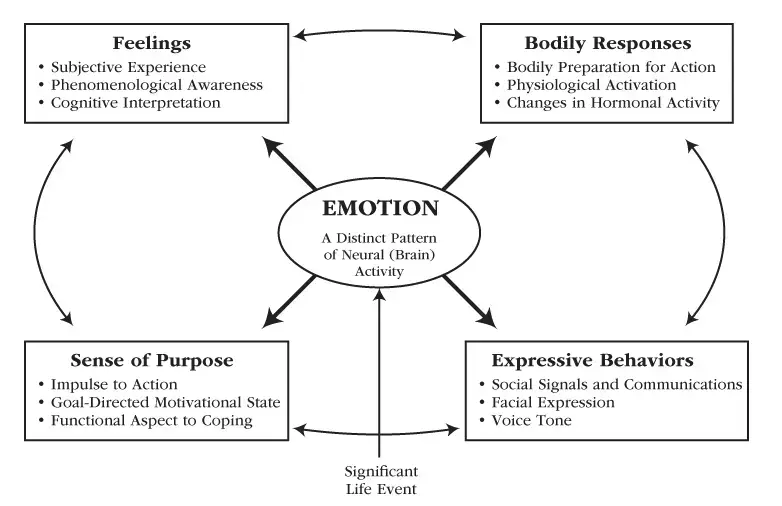Motivation: The Drive Behind Human Choices
Introduction:
Have you ever wondered why people make the choices they do? What drives their actions and decisions? The answer lies in motivation. Motivation is the internal or external force that stimulates and guides our behavior towards achieving a goal. It is the fuel that propels us forward, giving us the energy and determination to pursue our desires and aspirations. In this blog post, we will explore the concept of motivation, its different types, and how it influences human choices.
Understanding Motivation
Motivation is the force that drives individuals to take action, make decisions, and pursue their goals. It is the internal or external stimulus that energizes and directs human behavior. Motivation plays a crucial role in shaping our choices and determining the paths we take in life.
Theories of Motivation
1. Maslow’s Hierarchy of Needs
According to Abraham Maslow, human motivation is driven by a hierarchy of needs. At the base of the pyramid are physiological needs like food, water, and shelter. As these needs are satisfied, individuals move up the pyramid to fulfill safety, social, esteem, and self-actualization needs.
2. Expectancy Theory
The expectancy theory suggests that individuals are motivated by their belief that their efforts will lead to desired outcomes. It emphasizes the importance of valence (value attached to an outcome), expectancy (belief in the likelihood of success), and instrumentality (belief that performance will lead to the desired outcome).
3. Self-Determination Theory
Self-determination theory posits that humans have innate psychological needs for autonomy, competence, and relatedness. When these needs are satisfied, individuals experience intrinsic motivation, which drives them to engage in activities for the sheer enjoyment and satisfaction they provide.
Intrinsic vs. Extrinsic Motivation
Motivation can be categorized into two types: intrinsic and extrinsic.
1. Intrinsic Motivation
Intrinsic motivation arises from within an individual. It is driven by personal enjoyment, curiosity, or a sense of accomplishment. People engage in activities intrinsically motivated because they find them inherently rewarding and fulfilling.
2. Extrinsic Motivation
Extrinsic motivation, on the other hand, comes from external sources such as rewards, recognition, or punishments. It involves engaging in activities to attain external goals or avoid negative consequences. While extrinsic motivation can be effective in the short term, intrinsic motivation is considered more sustainable and leads to greater satisfaction.
Summary:
Motivation is a fundamental aspect of human behavior. It is the force that compels us to act and make choices in our daily lives. There are two main types of motivation: intrinsic and extrinsic. Intrinsic motivation comes from within, driven by personal satisfaction, enjoyment, or a sense of purpose. Extrinsic motivation, on the other hand, is derived from external factors such as rewards, recognition, or fear of punishment.
_max_bytes(150000)_strip_icc()/Rational-choice-theory-3cf73bf57f814075b80b676573a072a6.jpg)
Understanding motivation is crucial as it affects our decision-making process. It determines the goals we set, the effort we put into achieving them, and the persistence we exhibit when faced with obstacles. Motivation can be influenced by various factors, including our values, beliefs, past experiences, and social environment.
By understanding the different types of motivation and the factors that influence it, we can harness its power to drive positive change in our lives. Motivation can be nurtured and cultivated through goal-setting, creating a supportive environment, and finding intrinsic meaning in our actions. It is a powerful tool that can lead to personal growth, increased productivity, and overall well-being.
In conclusion, motivation is the driving force behind human choices. It is what pushes us to take action, pursue our goals, and make decisions that align with our desires and aspirations. By understanding and harnessing motivation, we can unlock our full potential and lead a more fulfilling life.
- Q: What is motivation?
- A: Motivation refers to the internal or external factors that drive individuals to take certain actions or make specific choices.
- Q: Why is motivation important?
- A: Motivation is important because it provides individuals with the necessary drive and energy to pursue their goals, overcome obstacles, and achieve success.
- Q: What are the different types of motivation?
- A: There are two main types of motivation: intrinsic motivation, which comes from within oneself, and extrinsic motivation, which is driven by external rewards or incentives.
- Q: How does motivation influence human choices?
- A: Motivation plays a crucial role in shaping human choices as it determines the level of effort, persistence, and commitment individuals put into achieving their goals.
- Q: Can motivation be learned or developed?
- A: Yes, motivation can be learned and developed through various strategies such as setting clear goals, finding personal meaning in tasks, seeking support from others, and celebrating achievements.
- Q: What are some common factors that affect motivation?
- A: Common factors that affect motivation include personal beliefs and values, past experiences, the presence of rewards or punishments, the level of interest or enjoyment in the task, and the perception of one’s own abilities.
- Q: How can one stay motivated?
- A: To stay motivated, it is important to set realistic and achievable goals, break tasks into smaller steps, maintain a positive mindset, reward oneself for progress, seek support from others, and regularly reassess and adjust goals if needed.

Welcome to my website! I’m Harrison Probert, a passionate and experienced Digital Marketing Manager specializing in Behavioral Psychology, Conversion Rate Optimization (CRO), User Behavior, Persona Development, and Site Usability. With a deep understanding of human behavior and a keen eye for data-driven strategies, I strive to create impactful digital experiences that drive results.

